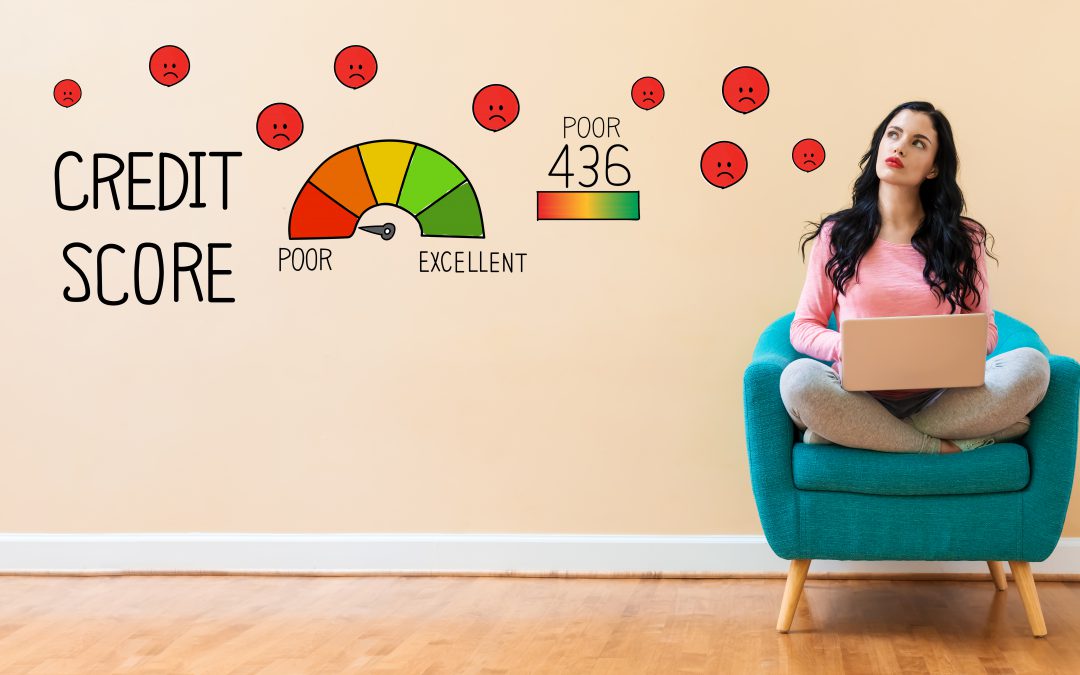Most of us at some stage in our lives will be subject to a credit check, this can vary from application for a mortgage, renting a property, financing a car, mobile phone contracts or applying for a loan. The higher your credit score in most cases, the lower the APR you will be charged on any credit offered to you. That is why it is important to aim to have a good credit score.
Your credit score is created from information held in your credit report, which is also known as your credit file.
Your credit score can differ between lenders or even between different products from the same lender, as it depends on the criteria they use to assess you as a potential customer.
The information held on your credit file might be used to decide whether to lend to you or not. For example if you have a poor credit history lenders may be hesitant to lend to you, and the ones that do are likely to charge a much higher APR as they see someone with a poor credit history as a higher risk.
The most up to date information on your file will have the most impact. This is because lenders will be more interested in your current financial situation. That said, your financial decisions – good or bad – from the last six years will be on record.
If your credit report shows a few missed payments, you might be charged a higher interest rate by lenders, or you might be refused a loan.
What is a Credit Reference Agency?
A credit reference agency can provide information about your credit history on request and there are three main agencies; TransUnion, Equifax and Experian. These agencies pull information from court records and the electoral roll and will also examine other lender’s records who have searched your file when a credit application has been made. They will also consider people you have a financial association with, as well as any other addresses you are linked to.
What is a good credit score?
Different lenders have their own standards for rating credit scores.
However, if you have a good score with one of the main credit reference agencies, it is likely you will have a good credit score with your lender.
What is a good Credit Score?
Transunion: Over 604 to 627 = Good
Transunion: Over 628 – 710 = Excellent
Equifax: Over 531 to 670 = Good
Equifax: Over 671 to 810 = Very good
Equifax: Over 811 to 1000 = Excellent
Experian: Over 721 – 810 = Fair
Experian: Over 811 – 960 = Good
What is a soft credit check?
A soft credit check is an initial look at certain information on your credit report. Companies perform soft searches to decide how successful your application would be without carrying out a full examination of your credit history.
Crucially, soft searches are not visible – so they have no impact on your credit score or any future credit applications you might make. Only you can see them on your report and it doesn’t matter how many there are.
What is a hard credit check?
A hard credit check happens when a company carries out a complete search of your credit report. Each hard credit check is recorded on your report, so any company searching it will be able to see that you’ve previously applied for credit.
Too many hard credit checks over a short period of time can affect your credit score for six months, reducing your ability to get approved for credit in the future.
How do I improve my Credit Rating?
- Make sure you are registered on the electoral roll
- Check for mistakes on your file using free to use services
- Pay your bills on time
- Make sure you have enough money in your account for your direct debits and standing orders
- Check if you are linked to another person
- Do not carry out numerous checks for loans in your name
- Check for fraudulent activity – If something on your credit report is wrong or does not apply to you, contact the reference agency to have your file updated. For example, if someone has applied for credit in your name without your knowledge.
- County Court Judgements (CCJs) – Receiving any county court judgements for debt will seriously affect your credit score. If you are having problems keeping up with debt re-payments seek free debt advice. Citizens Advice is a good place to start if you are experiencing problems with debt.
- High levels of existing debt – Ideally, you should pay off any outstanding debt before applying for new credit. This is because banks, credit unions and credit card companies might be hesitant about lending you more if you are still in a debt.
- Moving home a lot – Lenders may be hesitant if you have lived at numerous addresses over a short period.
- Maxing out your overdraft and credit cards – How you use your available credit can be warning sign for potential new lenders. Being constantly at or near your overdraft limit or maxing out your credit cards can be a barrier to applying for a loan. Usually, using less of your available credit will be seen positively by lenders, and will help increase your credit score.
- Use a credit card sensibly – You may have never been in debt in your life, but still have a relatively low credit score, this is because for a credit score to improve it has to know that you can repay, so some people use a credit card at 0.00% interest for specific purchases (eg; petrol) and pay it off in full at the end of every month. When credit cards are used sensibly it can be a good way to improve your credit score.
